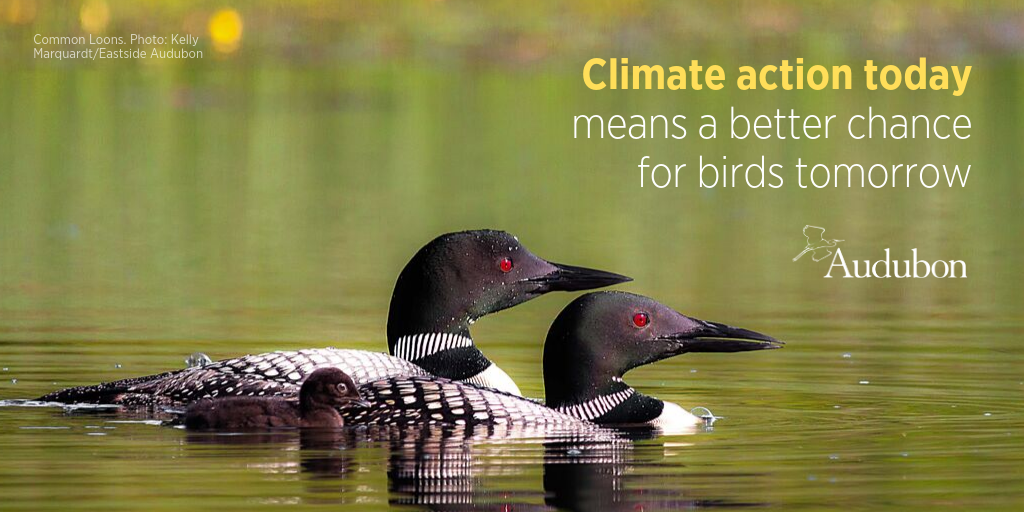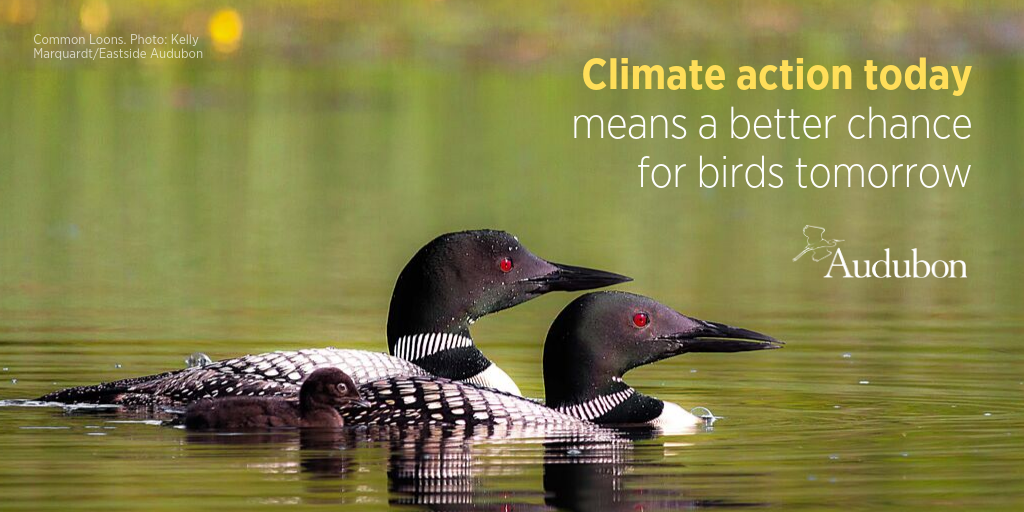A new report from the National Audubon Society, “Survival by Degrees: 389 Bird Species on the Brink,” describes the profound impact the climate crisis will have on North American bird species. This report comes on the heels of the youth-led and inspired Global Climate Strike just two weeks ago, when the world watched as millions, including a good number right here in Vermont, joined together to demand that our leaders take action. The Audubon report also follows the recent release of a study by the Cornell Lab of Ornithology showing a loss of nearly 3 billion birds since 1970 — the year I started second grade and, ironically, the year of the first Earth Day. Connecting the dots between the youth-driven call to action, the climate crisis and growing evidence of a worldwide, mass extinction, Audubon’s scientists stress the importance of taking climate action now to save our birds and ourselves.
Audubon’s report shows two-thirds of bird species in North America are at risk of extinction under a business-as-usual trajectory. By adding greenhouse gases to the atmosphere at current rates, we are rapidly warming our planet and disrupting the ecosystems on which birds (and humans) rely. At current rates of emissions, scientists expect a global temperature rise of at least 3 degrees Celsius (5.4 degrees Fahrenheit), a level that Audubon scientists demonstrate will have a catastrophic effect on birds. The disruption of bird populations is not just the result of losing habitat, places to nest and sources of food, but also the result of threats associated with climate disruption, such as the extreme flooding events that are, unfortunately, becoming routine in Vermont. While sobering, the report sounds a somewhat hopeful note, by showing we can avoid the worst impacts if we act now.
Here in Vermont, we face a significant loss of our favorite bird species. Vermont has already warmed more than 2 degrees Fahrenheit in the past century, almost twice as much as the rest of the United States. More concerning is that we face the prospect of temperature increases many times greater in the coming decades, with the risk of losing our most cherished and well-known birds. The sweet song of the White-throated Sparrow reminds us the warmth of spring is coming after a long winter. The Hermit Thrush, our state bird, embodies the plucky nature and resilience of Vermonters, and needs the same healthy forests for its survival that serve as our most vital natural and economic resource. The haunting call of the Common Loon connects us to the wildness that surrounds us, and to the natural beauty and spirit of Vermont that inspires people to come to our beautiful state of green hills and silver waters. Each one of these species of birds, along with many others, plays a critical role in our lives and communities, and reflects the health of a natural world that sustains us. Each one of these species of birds, along with many others, is likely to be gone from Vermont if we do not take stronger action.
The message from our birds is clear: we must act now. We already know what we need to do to help the birds we love. We must act now, not just for birds, but for ourselves. Today’s young leaders have heard this message and, with a level of impatience that is entirely appropriate, are demanding we do better. Audubon’s scientists show we can still give more than three-quarters of the bird species at-risk a fighting chance for survival if we reduce our net carbon emissions to zero. Vermont is uniquely positioned to help achieve this goal through continued investment in energy efficiency, electrification of our transportation and heating sectors, and protection of our working forests and fields. We can heed our youth and meet our climate goals while ensuring healthy and prosperous communities through our own actions, and through calling on our elected leaders to adopt strong climate legislation. Go to Audubon Vermont’s
website to learn more about the steps Vermonters can take to address climate change and its impact on birds.









